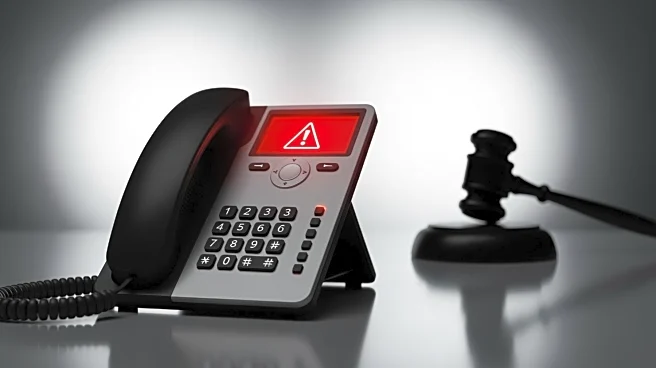What's Happening?
A bipartisan bill designed to crack down on overseas robocalls has advanced through a key Senate committee. Sponsored by Senators Ted Budd and Peter Welch, the Foreign Robocall Elimination Act aims to create a public-private interagency task force at the Federal
Communications Commission (FCC) to study and recommend actions on robocalling operations based outside the United States. The task force will explore solutions to curb robocalls without disrupting regular communications or legal marketing. The bill passed through the Senate Committee on Commerce, Science, and Transportation, clearing a hurdle for a full Senate vote.
Why It's Important?
The advancement of this bill is crucial as it addresses the pervasive issue of illegal robocalls, which affect millions of Americans annually. These calls often lead to financial losses and privacy breaches, impacting consumers across ideological and class divides. By establishing a task force, the bill aims to provide policymakers with insights into the telecommunications ecosystem, potentially leading to more effective strategies to combat robocalls. The legislation also seeks to enhance the effectiveness of existing protocols like STIR/SHAKEN, which are designed to prevent call spoofing.
What's Next?
The bill will move forward to a full Senate vote, where it may face further debate and potential amendments. If passed, the task force will begin its work, potentially leading to new regulations or policies aimed at reducing robocalls. Stakeholders, including telecommunications companies and consumer advocacy groups, are likely to engage in discussions about the bill's implementation and its impact on the industry.
Beyond the Headlines
The bill's focus on international robocalling operations highlights the global nature of telecommunications challenges. It may lead to increased collaboration between U.S. agencies and international counterparts to address cross-border scams. Additionally, the legislation could influence future regulatory approaches to digital communication and consumer protection.
















